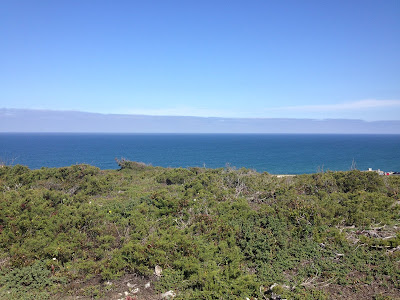What is home?
This monday morning on a lecture, the professor gave us a big sheet of paper and ask us to draw, representing "home". This was an exercise that was supposed to made us think about place and place making from a cultural point of view.
She told us we could choose words as well, but only three. Quite a task for a monday morning!
The results were surprising. As a heterogeneus group - with members from England, Wales, France, Taiwan, Japan, Brazil - it was quite interesting to see that "home" can have so many different dimensions and meanings. "Home" can be defined by emotional images of place - many of us represented family, or exaggerated certain physical features that relate to emotional responses they trigger in us. When I looked at my drawing (which was almost impossible to understand because I am an awful drawer, btw) I understood that the great part of my picture represented outdoors: the mountain (with a castle on top - with a portuguese flag, of course); the sea; trees and Lisbon city night - with popular saints decorations, tables outside, and the clothes hanging from the houses' windows. One of the most interesting things about this exercise, is that I found myself drawing the things I miss the most about home: the freedom of being outside by the sea in open spaces, with friends and family, sharing a meal and enjoying outdoors. That is why I chose the words: roots, together and outdoors. This made me think that the way we experience places (even in our imagination) is also shaped by our previous and present experiences. I am pretty sure that if I did this exercise while I was at home, I would have selected different aspects. This is one of the other reasons I believe escaping out of our confort zone is so important for our development. In fact, if you stay apart from a place - whether physical, emotional, professional - you will find it different when you return. You will discover new value in it. So, this exercise reminded me of the things I miss the most, but also created in me a renovated hope: that when I return, I will experience home in many other dimensions.


As you set out for Ithaka
ResponderEliminarhope the voyage is a long one,
full of adventure, full of discovery.
Laistrygonians and Cyclops,
angry Poseidon—don’t be afraid of them:
you’ll never find things like that on your way
as long as you keep your thoughts raised high,
as long as a rare excitement
stirs your spirit and your body.
Laistrygonians and Cyclops,
wild Poseidon—you won’t encounter them
unless you bring them along inside your soul,
unless your soul sets them up in front of you.
Hope the voyage is a long one.
May there be many a summer morning when,
with what pleasure, what joy,
you come into harbors seen for the first time;
may you stop at Phoenician trading stations
to buy fine things,
mother of pearl and coral, amber and ebony,
sensual perfume of every kind—
as many sensual perfumes as you can;
and may you visit many Egyptian cities
to gather stores of knowledge from their scholars.
Keep Ithaka always in your mind.
Arriving there is what you are destined for.
But do not hurry the journey at all.
Better if it lasts for years,
so you are old by the time you reach the island,
wealthy with all you have gained on the way,
not expecting Ithaka to make you rich.
Ithaka gave you the marvelous journey.
Without her you would not have set out.
She has nothing left to give you now.
And if you find her poor, Ithaka won’t have fooled you.
Wise as you will have become, so full of experience,
you will have understood by then what these Ithakas mean. - Cavafy
Interesting that when I entered Reticências theatre group, this was one the first poems we recited on a play.
ResponderEliminarLike places, is good to revisit poems because when you do so, we'll find new meanings... not in the poems, but in yourself.